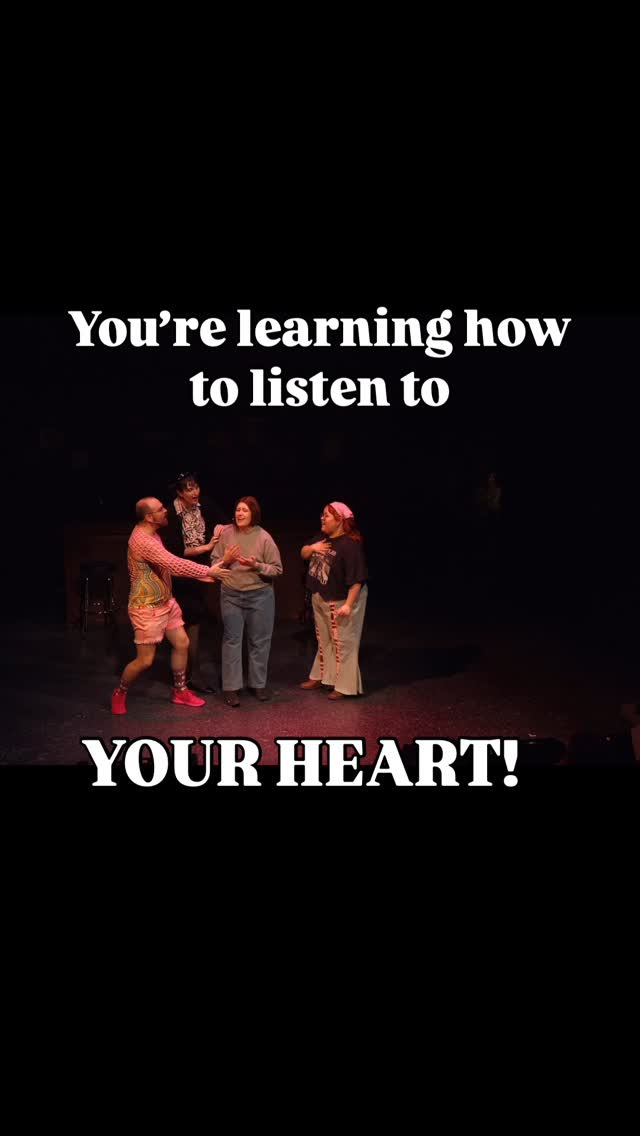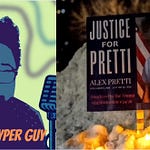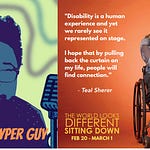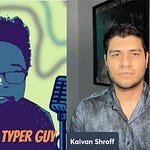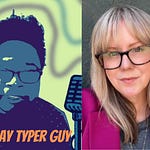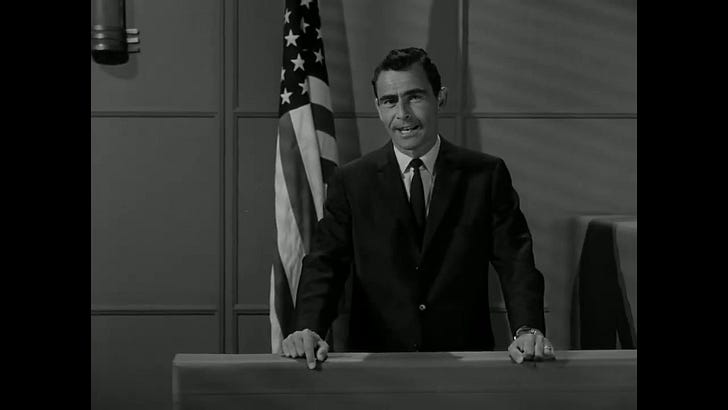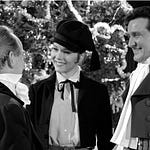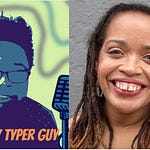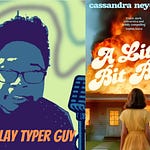I’m happy to welcome back to the podcast theater maker Jasmine Joshua, one of the brilliant minds responsible for the new world premiere musical Here and Their, which runs at 12th Avenue Arts in Seattle from June 13th to June 28th.
I had the pleasure of working with Jasmine on the Curiouser and Curiouser production at Cafe Nordo, and they were a wonderful steward during those early days back on stage after covid hit.
Watch or listen to our chat here or check it out on YouTube. See you Monday!
Edited excerpts from our conversation:
SER: Here and Their is billed as a non-binary musical. So, let’s start with the story itself, which has a classic American musical coming-of-age structure, but obviously with your unique twist. Can you tell folks about it?
JASMINE: Yeah, so our story begins in Butte, Montana, with Samantha O'Malley, who is about to get married to the love of her life. And, as one does, is going through some RSVPs and she gets a return to sender from a relative that she’s never heard of before and that her family entirely denies that they know anything about, which of course makes Sam only more suspicious. Sam looks up this secret relative, and it turns out that the secret relative is her aunt, the legendary punk rock singer, Vikki Vector, who happens to also be a lesbian and run a bar with her wife of 30 years in Los Angeles.
Sam goes on this internet search and she starts looking up Vikki Vector. I don’t know if your listeners know this, but when you use the internet search function, they start to suggest things that might be based on previous searches. So the more that Sam looks into lesbian punk rock Vikki Vector, the gay internet just envelops Sam’s life.
And Sam starts coming across terms that she has never heard before. She starts to wonder if she is, in fact, not a she. She might be this weird new term that Sam has never heard of called “non-binary,” and the only queer person that Sam now knows is this mystery aunt. So then Sam goes on a journey to find Vikki Vector.
SER: I love musicals, as I think anyone who’s watching this will probably deduce. So the question I think that is often relevant is what made you decide that this needed to be a situation where people break out in song. We've worked together, so you know that I always say that people should be breaking out in song. But for normal people, they tend to want a justification.
JASMINE: I'm going to say less than a year out of the closet when I came up with the story. And even though I am not a self insert … I am nothing like Sam. I am very East Coast, and I purposefully put Sam in Butte, Montana, because I wanted to show that, yes, queer people exist everywhere. It also has to do with just, like, if you can’t see it, can you be it? Hence “representation matters.”
I am not Sam, but I have a similar story to Sam, which is that I am when I came out, I was in my 30s and I was already married. In fact, I had children. My twins were three years old and I wanted to write a story because a lot of coming out stories — we’re talking about your classic, coming of age story — they start when you are 16 or maybe even 18 so that we can have you kiss, and it’s not weird. But they’re young. What the hell happens when you’re not? What happens when you discover something like about yourself late in life? I wanted to write that story.
So I also love musicals. I think that the thing about being non-binary is that there is no language for it. You know our history and our existence has been burned and erased and denied for so long that we have not come up with a vocabulary to describe ourselves. There is no word for me: Mr. Mrs. And then there’s “Mix,” but “Mix” is kind of really close to “Miss.” So for me, that doesn’t really help me.
So if you can’t say it, the next obvious thing is you can sing. That to me was [when] I knew I wanted it to be a musical because there’s just so many moments where it’s, “God, I don’t know how to say what I want to say because there's no language for me to say it.”
SER: Of the characters and the roles of certain characters in musicals don't necessarily need to be played by a non-binary or queer person. I think for Oh Mary! Cole Escola’s understudy is a cis woman and a Black cis man has played the part. But how have you approached the casting specifically in Here and Their?
JASMINE: This is a great question. I love discussing. “When does this matter and when does it not matter? Let’s find out.” Despite the fact that I run Reboot Theatre Company, I actually think that the category of show, play or musical, where you have to think more critically about casting are our identity stories. Because the story is tied to the identity of that character. The non-written parts of the show that happen that the audience sees are told by the identity of that person being in a situation. Like you just know that when this person walks into a room, everyone goes, ooh, because they understand that the identity of this person does not match or it’s going to come into conflict with what is about to happen, right?
So, we went back and forth about this. Alexis is one of my very good friends and he helped me write the story to this show, and this is a conversation that we had a lot, which is “Can Sam be played by anybody?” At first, we wanted to say “of course,” but I actually don’t think that that is true, especially because the more we wrote it, we wanted to be specific about certain things. And because of that, the actor’s identity had to be the same as Sam’s. Once that happened, that dominoed a lot of other things.
For example, Vikki Vector is related to Sam, and Vikki Vector is a lesbian of a certain age who grew up during a certain time, like the late sixties into the seventies when the women’s movement, bu with a Y, was a really big deal and that lesbians were carving out their own space in queer spaces and we’re wrestling with what is a woman’s space and what isn’t a woman’s space. So, they had very specific ideas of what a woman is. And that is how Vikki came up. So what does that do to a woman who now it’s in modern times? She’s going to have different ideas about what non-binary is because there is some tension between older lesbians and younger non-binary people,
I’m going to use a phrase that I know isn’t liked anymore, but like I said, we don’t have any language and I really don’t know how else to say it. It’s called AFAB, which is “assigned female at birth.”
I don't particularly like to be reminded of that when describing myself, but I don't know how else to say it. So I’m going to use it. If anyone knows the real answer, like put it in the comments or email me, because I’d love to know another way to say it, but I actually don’t know.
So, in any case, there is a tension because (some lesbians) are like, “Why aren’t you just a butch dyke?” It’s because I’m not a woman. And that tension is something that we wanted to talk about in the show, so I think having a cis woman as Vikki is important because the tension between Sam and Vikki is important to the story.
If you’re in the Seattle area, go grab tickets to Here and Their, playing now at 12th Avenue Arts. Happy Pride!



